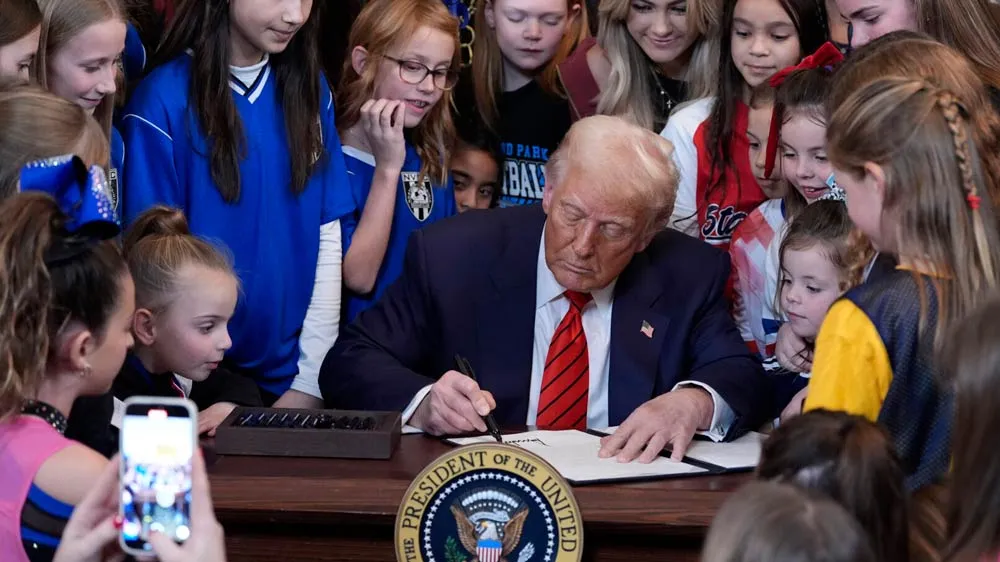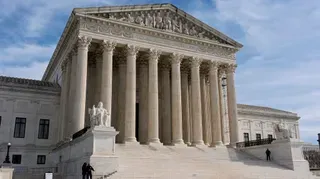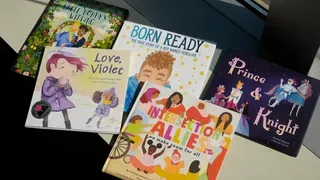August 17, 2009
EQCA recommends 2012
Robert Nesti READ TIME: 8 MIN.
As a coalition of grassroots groups move toward a Proposition 8 repeal effort in 2010, the state's largest LGBT lobbying organization said it was recommending that such an undertaking not take place until 2012.
Equality California made the announcement in a conference call Wednesday, August 12, where it also released a 31-page analysis and plan for a 2012 campaign. An online town hall, where people can ask questions, will take place tonight (Thursday, August 13) at 5 p.m.
Equality California Executive Director Geoff Kors said in an interview with the Bay Area Reporter this week that the decision was not an easy one. Kors, as much as anyone, said that he wants to see Prop 8 repealed as quickly as possible. He has taken strong criticism from many in the community for his leadership role in last year's failed No on 8 campaign.
"After looking at all the data we believe 2012 is the time," Kors said.
EQCA's decision means that it will not divert money to a signature gathering effort for the November 2010 ballot that the Coalition for Marriage Equality - a group of grassroots organizations - is currently discussing.
Over the past 100 days, EQCA has looked at recent polling, studied projected voter turnout models, talked to California political consultants, and consulted with donors to No on 8, its members, and the community. EQCA has begun two distinct canvassing projects and opened field offices around the state. Kors said that 500,000 doors have been knocked on and 500,000 conversations have been held in an effort to persuade voters.
Marc Solomon, EQCA's marriage director, said that they are finding that 20 percent to 25 percent of the conversations canvassers have had with people who voted for Prop 8 have resulted in "voters showing some movement."
Amy Mello, EQCA's field director, said that canvassing has taken place in 19 communities. But she also said that the so-called movable middle is still movable.
"I think we still have a lot of work to do," Mello said.
Kors said that the turnout projections were a big factor in EQCA's decision, and pointed to data that show there is a 2 point to 3 point advantage for the marriage equality proponents during a presidential election year, when more people - and more younger voters - go to the polls.
"Presidential elections draw a greater turnout than any other election, including gubernatorial elections," EQCA's report states.
Using historical data to estimate turnout in 2010 and 2012, 37 percent of voters in 2010 will be older than 60, compared to only 27 percent of voters in 2012, the report states.
"Age is one of the top predictors of someone's position on marriage equality - the younger one is, the more likely they are to support the right of same-sex couples to marry," the report states.
Responding to proponents for 2010 who argue that they could better control voter turnout next year - by identifying and turning out the younger people who voted in 2008 but who ordinarily don't vote for governor - EQCA's report said upon further analysis "that does not appear to be a strategy that will give us a winning margin." Mainly, that is attributed to research that shows such a voter's intensity is "generally lower than the intensity of our opponents' opposition, so motivating these younger voters to turn out will be at least as difficult as our opponents' efforts to motivate their supporters to turn out," according to EQCA's analysis.
Money
There is also the issue of money - a repeal effort is likely to cost at least the $43 million that No on 8 raised last year, and probably closer to $50 million. Kors said that EQCA talked with the No on 8 campaign's top 100 donors or those who solicited large donations for the campaign last year. Many are skeptical about a 2010 effort.
While an informal survey of EQCA's members earlier this year indicated a majority favored 2010, things have changed, Kors said.
"We all said we want to go in 2010, if we hear back overwhelmingly and have support financially," said Kors. "But we haven't seen that."
Additionally, Kors said that LGBT people of color organizations have said they need more time to continue working to persuade the larger minority groups in the state. A coalition of LGBT people of color groups issued a statement last month urging the community not to attempt a repeal effort in 2010.
Kors said that EQCA has raised $390,000, which has been spent on hiring canvassers and opening field offices in various parts of the state, including one that recently opened in Fresno. But in an indication of how difficult it is to raise money during the economic downturn, Kors acknowledged that EQCA had not met its goal set some 100 days ago of raising $500,000.
"It's the only goal we didn't meet," Kors said.
Kors also said on the call that should the federal Perry v. Schwarzenegger lawsuit be successful in its early stages - a ruling at the district court level could come as early as next spring - it would have a significant effect on the ability to raise funds for a 2010 effort, with donors possibly opting not to contribute since the court case is advancing.
Community Surveys
This spring, EQCA conducted an informal survey of its members and participated with other groups in the "Get Engaged Tour," which consisted of town hall meetings throughout the state where people were given information from the private poll that EQCA and other groups had commissioned. That poll found a slight edge in public support in 2012 compared with 2010.
Participants at the town halls were asked to vote on whether they supported returning to the ballot in 2010 or later.
"The results were very mixed: in 12 communities, the majority favored a 2010 ballot initiative; in 16, the majority clearly favored a 2012 or later initiative; and in four communities, the results were divided nearly 50-50," EQCA's report states.
A graph shows that communities favoring November 2010 included San Francisco, West Hollywood, San Diego, San Jose, and Fresno. Those favoring 2012 or later included communities in Sacramento, Hayward, Monterey, Palm Springs, Berkeley, Oakland, and community service executive directors. LGBT family groups have also come out in favor of a later campaign.
Going Forward
EQCA's recommendation likely will not be heeded by the Coalition for Marriage Equality (formerly the Coalition of the Willing), which met in Los Angeles last weekend and heard from Steve Hildebrand, the openly gay deputy campaign manager for President Barack Obama's presidential race last year. Hildebrand was brought to the meeting by the Courage Campaign. Hildebrand was to have appeared at a meeting of LGBT faith groups in San Francisco Tuesday evening, but was unable to attend due to meetings in Los Angeles.
Hildebrand did not return a message from the B.A.R. seeking comment.
According to an interview with reporter Karen Ocamb, Hildebrand said he would not be in a position to move to California to manage a day-to-day campaign. He also acknowledged that he has no extensive experience in California.
At Sunday's meeting in Los Angeles, it was decided that a convention would be held in San Francisco next weekend and that groups would send delegates to the August 22 gathering.
Chaz Lowe, one of the founders of Yes on Equality, which is pushing for a 2010 repeal effort, told the B.A.R. this week that the grassroots groups are encouraged by recent data, as well what he described as a coming together of many grassroots organizations after much back and forth at previous meetings.
"The summits had to take place," Lowe said, referring to somewhat contentious meetings that were held in Fresno and San Bernardino. "How do we coalesce? I think that's starting to happen. At Sunday's meeting people made a giant leap toward that."
Lowe acknowledged that planning for a 2010 repeal effort "needs to start now" and that several grassroots groups have come together.
Lowe also said that money would have to be raised for a signature gathering campaign to qualify the repeal initiative for the ballot. One group, Love Honor Cherish, has stated in its plan that only volunteers could be used but Lowe said, "Courage and ourselves realize we have to have paid signature gatherers" for at least a portion of the estimated one million signatures that will need to be collected in order to get nearly 700,000 valid ones.
The Courage Campaign announced just before the EQCA call that it had raised more than its goal of $100,000 toward ballot language research and polling and will push ahead with a 2010 effort. It has challenged other groups to raise an additional $100,000. EQCA will not be part of that effort.
Lowe also said grassroots groups "have talked about" the possibility that same-sex marriage opponents would launch a decline to sign campaign in an effort to discourage people from signing the petitions.
Kors said that "we will work with everyone" on research needed for ballot language with the grassroots groups.
"We'll help out with research on ballot language and messaging and continue our persuasion work," Kors said.
But he said EQCA will not "divert resources to a signature gathering campaign at this time."
"There's been a shift in the community," he said.
EQCA's report is online at www.eqca.org/plan. EQCA will hold an online town hall Thursday, August 13 beginning at 5 p.m. The livestream will show up on the home page at http://www.eqca.org and at www.livestream.com/equalitycalifornia. B.A.R. news editor Cynthia Laird will moderate.
Robert Nesti can be reached at [email protected].







